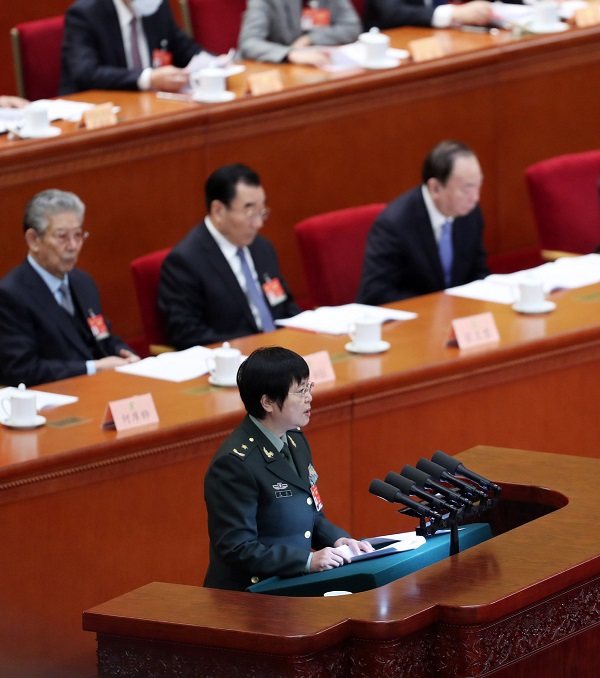Scientists should bolster defense against COVID-19 strains, senior biomedical engineer says

Chen Wei, an academic at the Chinese Academy of Engineering, speaks during the second plenary meeting of the fourth session of the 13th National Committee of the Chinese People's Political Consultative Conference at the Great Hall of the People in Beijing, March 7, 2021. [Photo/Xinhua]
Chen said the success of the vaccine is "the result of our persistence on making independent innovation." Chen's team also developed an Ebola vaccine, as well as recombinant vaccines for biodefense that have been granted patents in China, the United States and other countries.
"We have achieved a key competitive advantage in viral vector and recombinant vaccines, and this achievement did not come lightly," she said.
In the bioengineering field, however, Chen said China still has many shortcomings that need to be overcome in the following years. These include a lack of top-level, scientific planning, uneven distribution of research capability among institutions, lack of mechanism to support long-term research, inadequacies in basic research, infrastructure and the ability to swiftly respond to urgent needs.
To remedy these issues, Chen suggests establishing a whitelist of research entities to tackle major technological obstacles in the nation's public health and biosafety sectors, as well as optimize research institutions and facilitate resource sharing.
Secondly, China should establish a new technological innovation center dedicated to creating specialized vaccines to bolster the nation's biosecurity. Although the COVID-19 is under full control in China, the pandemic still rages on around the globe, thus prevention measures should not be relaxed, she said.
Therefore, China should keep investing in COVID-19 related research, and utilize new technologies such as big data, cloud computing and artificial intelligence to get a better understanding of the origin of the virus, its animal hosts and pathological mechanism.
At the same time, scientists should analyze how mutated strains of the COVID-19 virus can affect current prevention and control measures, and create new vaccines and diagnostic tools for these new variants just to be prepared, she added.
Lastly, Chen said there is a need to create an academic environment that is conducive for basic research and supportive for young talents.
"We should provide more support to researchers who are spending years doing basic research, and unlock everyone's drive to explore and focus on frontier sciences, so that we can achieve more original groundbreaking feats," she said.
Copyright © The National Committee of the Chinese People's Political Consultative Conference.
All rights reserved. Presented by China Daily.
京ICP备08100501号-1

